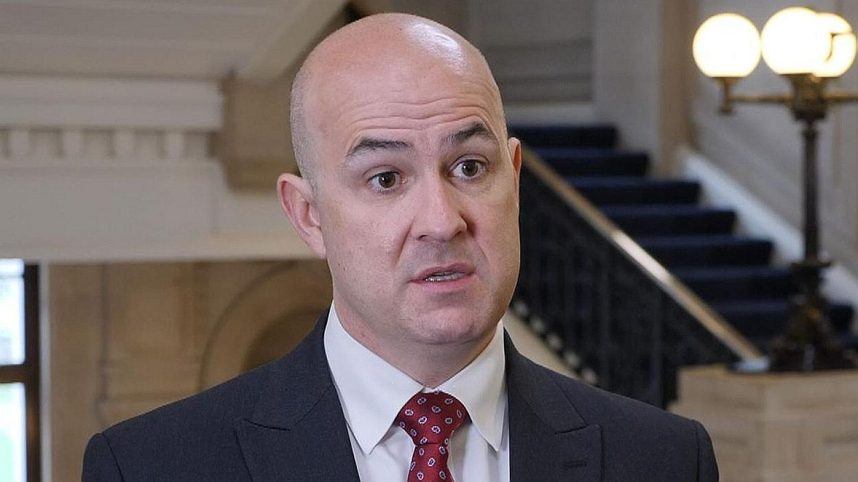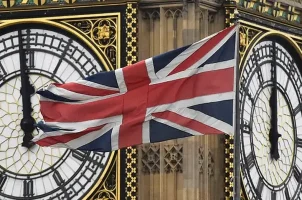UK Gambling Commission Boss Backs Affordability Checks Despite Research
Posted on: October 18, 2023, 07:25h.
Last updated on: October 18, 2023, 11:02h.
In a stern rebuke against what he perceives as a deliberate campaign of misinformation, UK Gambling Commission (UKGC) CEO Andrew Rhodes expressed his frustration at the International Association of Gambling Regulators (IAGR). The CEO pointed his finger at news outlets for allegedly distorting facts about affordability checks, accusing them of intentionally misrepresenting the potential consequences.

Affordability checks, included in the gambling white paper, have been a contentious issue in the UK gambling landscape. The government is pushing for stringent measures to ensure that individuals aren’t exposed to harmful levels of gambling. These checks would assess a player’s financial situation to determine if they can afford the bets they are placing.
Speaking at the IAGR, Rhodes targeted media outlets, asserting that some are actively working to “torpedo the implementation of government policy” by disseminating misleading information about the impact of affordability checks. The CEO expressed his frustration with what he considers a blatant attempt to sway public opinion against the regulatory measures.
Reforms Still Open to Interpretation
Critics argue that affordability checks could have severe consequences for players and the gambling industry. Rhodes reiterated the UKGC’s position that the actual damage wouldn’t be as extensive as some fear. However, he stopped short of providing concrete statistics or research to substantiate this claim.
Rhodes’ remarks underscore the challenges faced by regulatory bodies in implementing measures aimed at curbing perceived harms associated with gambling. The battle extends beyond the legislative sphere to the court of public opinion, where narratives surrounding the impact of regulatory actions can shape public perception and influence policy outcomes.
The CEO’s critique at the IAGR signals a determination on the part of the UKGC to counter what they see as a deliberate attempt to sow doubt and opposition to regulatory measures. As the debate on affordability checks continues, the UKGC faces the uphill task of navigating public discourse. Its goal is to ensure a balanced understanding of the regulatory landscape and its intended effects on the gambling industry and its patrons.
The UKGC and government officials are closing a consultation period on affordability checks, as well as other issues, on Wednesday. The gaming regulator received 2,100 responses at the time of Rhodes’ IAGR speech, which will hopefully be considered when the final policies are ready.
Government Officials Aren’t Listening
There has been a long-held concern that far-reaching controls over the UK’s gambling industry would lead to greater participation through offshore platforms. This has been reinforced by studies that have shown that over-restrictive markets cause gamblers to seek unregulated alternatives.
Rhodes doesn’t believe this will happen, and calls the claim “overstated.” He asserted that the UKGC, through its increased policing efforts, has witnessed a 46% decline in black market online gambling. However, he highlighted that the figures only reflect traffic to certain sites.
His denial of how affordability checks will impact the regulated market clashes with the results of a recent survey. As media outlet Racing Post pointed out from the “Right to Bet” survey, some bettors are already making plans to jump ship.
The survey, which focused mainly on horse racing bettors, found that 25% of the 14,465 survey respondents have had to face affordability checks. Of these, 63% refused to participate. They then either quit betting completely or looked for an alternative site.
The same survey found that only 8% of the total survey group would comply with the checks. Some 15.3% said they would comply the first time, but not on subsequent attempts by the UKGC to enforce a check.
Racing industry insiders have already claimed that the affordability checks will decimate the industry almost completely. These latest results seem to support that hypothesis, especially amid a lack of research to the contrary.
Related News Articles
UK Gambling Commission Eyes ‘Single View’ for Online Gaming
Most Popular
Casinos That Were Never Casinos
LOST VEGAS: The Strip’s First Fountain Show
Washington State Casino Reopens Weeks After Apparent Cyber Attack
Most Commented
-
End of the Line for Las Vegas Monorail
— April 5, 2024 — 90 Comments -
Cracks Emerging on Las Vegas Strip Says Analyst
— April 30, 2024 — 18 Comments -
Mega Millions Reportedly Mulling Substantial Ticket Price Increase
— April 16, 2024 — 10 Comments -
Caesars Open to Selling ‘Non-Core’ Casinos to Reduce Debt
— May 1, 2024 — 8 Comments
















No comments yet